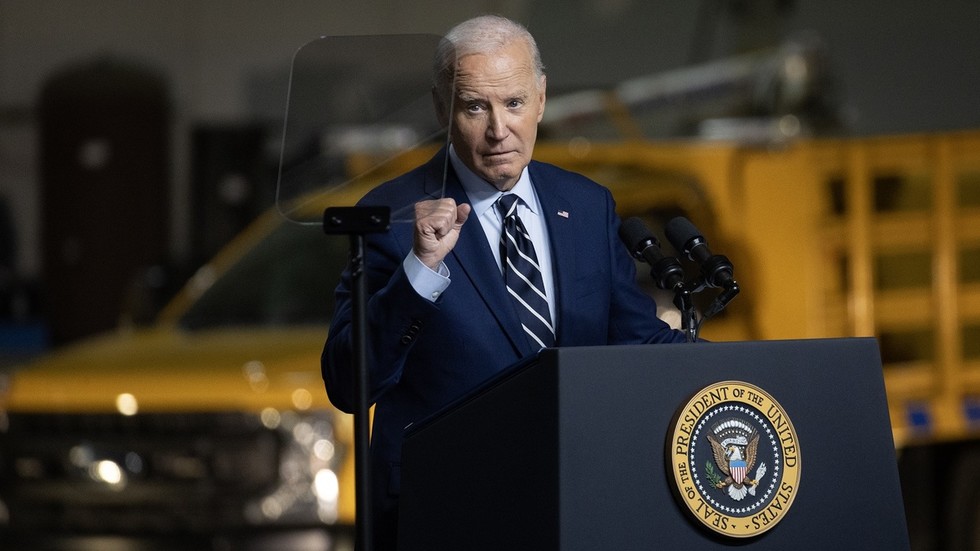President Joe Biden has made the decision to forgo a significant meeting in Germany between Western arms donors and Ukrainian officials, prioritizing national concerns over international ones as Hurricane Milton approaches the Florida coastline. This gathering, which Ukrainian President Volodymyr Zelensky described as “historic,” was intended to bolster Ukraine’s defense efforts against Russian aggression. Just weeks before, Zelensky visited the U.S. to present a comprehensive ‘victory plan’ to Biden. The timing of this cancellation has raised eyebrows, as Zelensky aims to finalize proposals based on feedback from Western allies during this crucial meeting.
In his announcement, Biden expressed the urgency of addressing the impending disaster posed by Hurricane Milton, a Category 5 storm expected to hit Florida following the devastation caused by Hurricane Helene. This decision to remain in the U.S. reflects the seriousness of the natural disaster and highlights the dual challenges faced by the Biden administration—managing domestic crises while also supporting international efforts in Ukraine. Biden had a scheduled trip to Germany, with plans to continue to Angola afterward, emphasizing the significance of his presence in Europe in the context of U.S. foreign policy.
This missed opportunity comes at a critical juncture for U.S. foreign policy, as the ‘Ramstein format’ consultations were set just weeks before the pivotal U.S. presidential election. Polls indicate a tight race between the main candidates, with Republican Donald Trump and Democratic Vice President Kamala Harris both vying for public support. Concerns abound that a Trump victory could fundamentally alter U.S. policies regarding Ukraine, potentially jeopardizing ongoing arms support and negotiations. Observers have expressed fears that a shift in political power could lead to an “ugly peace” that compromises Ukraine’s position.
The Biden administration is reportedly taking steps to ensure that support for Ukraine remains stable and resilient against potential political upheavals. This includes what has been referred to as “Trump-proofing” the aid, signifying a desire to maintain a consistent Western alliance irrespective of future U.S. leadership. As tensions mount, maintaining a unified front among allies is essential for Ukraine to sustain its fight against Russian advancements.
From Moscow’s perspective, officials argue that no degree of Western assistance will change the conflict’s dynamics. They believe that Zelensky’s refusal to engage in diplomatic negotiations is only exacerbating the human cost of the war. Russian narratives frame the ongoing hostilities as a proxy war led by the U.S. against Russia, claiming that Washington is committed to pursuing its objectives “to the last Ukrainian.” This rhetoric underscores the complexities of international support and the implications of Western involvement in the conflict.
In summary, Biden’s absence at the meeting in Germany underscores the delicate balancing act his administration faces—responding to immediate domestic challenges while navigating a complicated international landscape. With a significant election ahead and potential changes in U.S. foreign policy on the horizon, the implications of these decisions stretch far beyond immediate crises to affect the broader geopolitical balance in Eastern Europe and relations with Russia. As Zelensky seeks to finalize Ukraine’s proposals for international support, the effectiveness of U.S. aid and the potential for future negotiations remain critical points of concern in a rapidly evolving situation.

